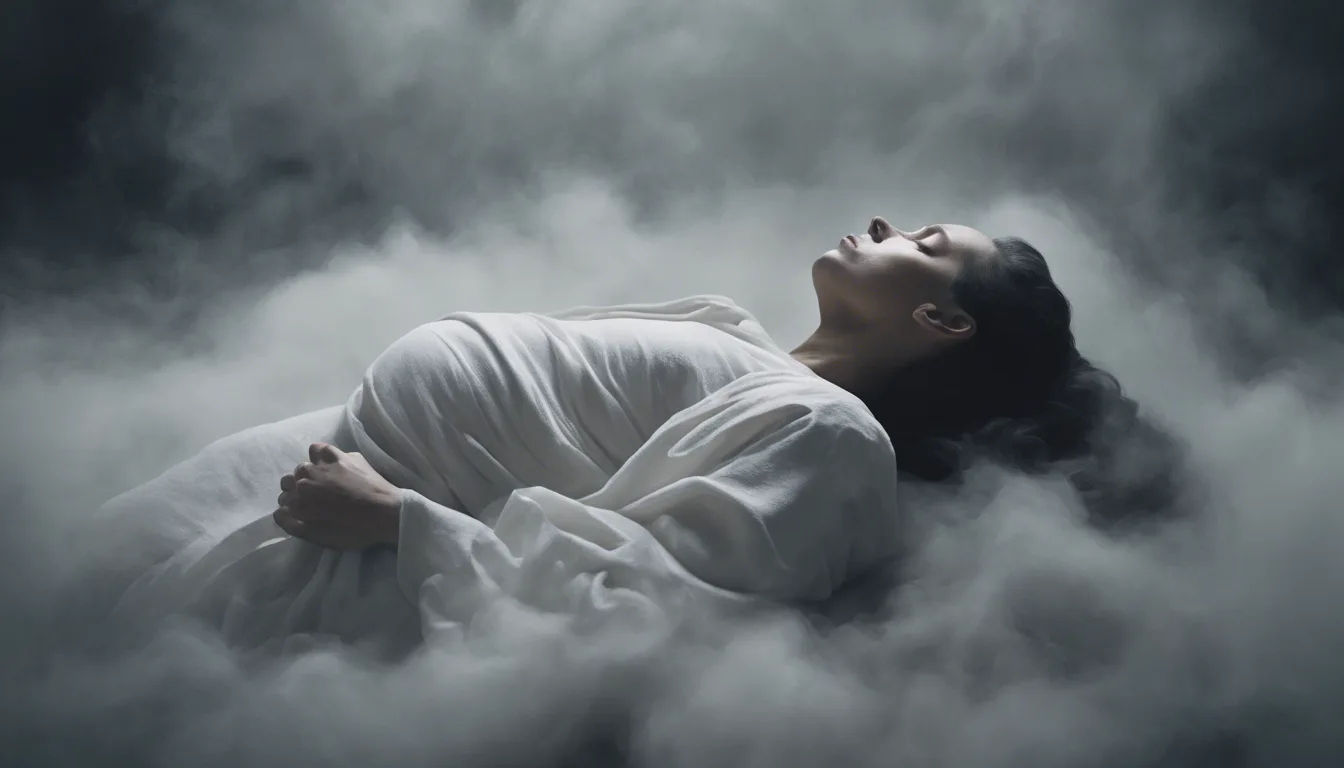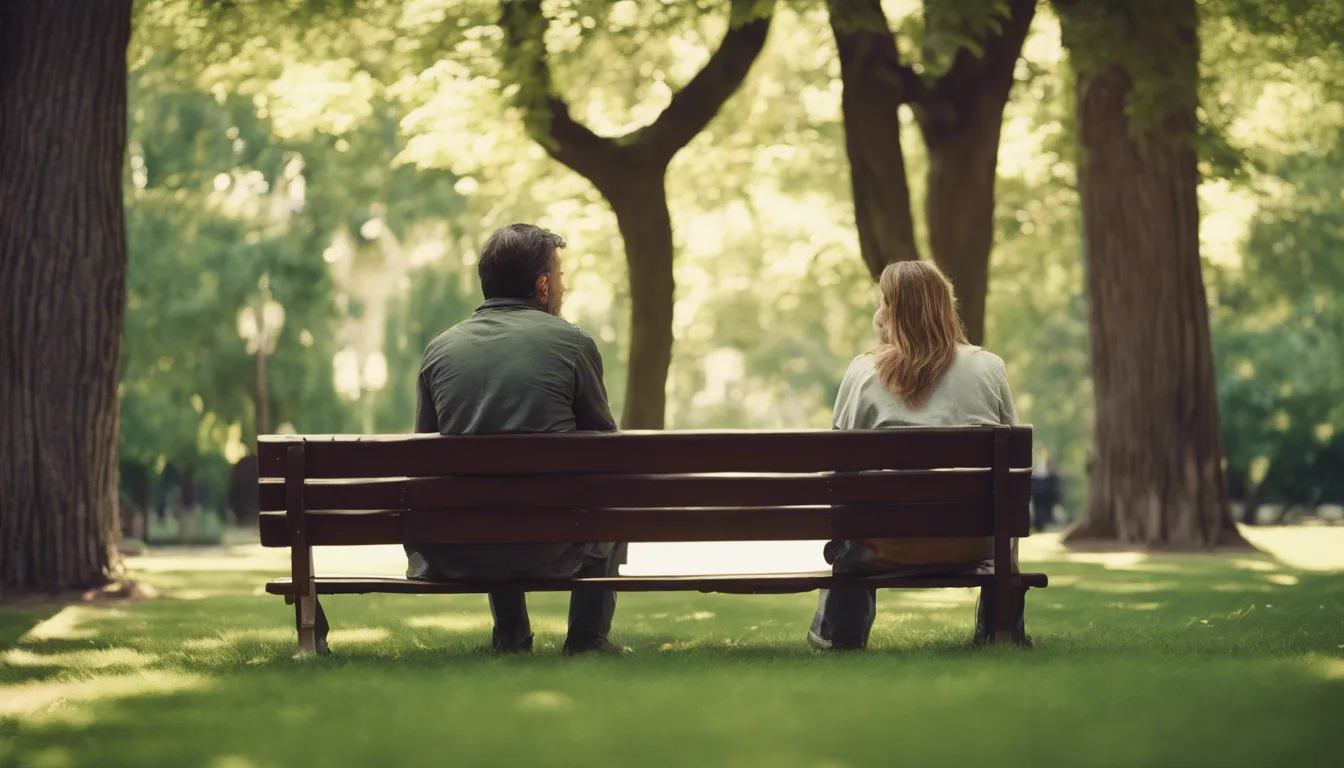10 Demographics of People Who Might Dream of Their Own Death
Want a Personalized Dream Interpretation?
Curious about how people like you interpret this dream symbol? Explore personalized interpretations tailored to your demographic. Get personalized insights for free!
Get Free Interpretation Now →Table of Contents
1. New Beginning
For those experiencing significant life changes or embarking on new chapters, dreams of their own demise can hold profound meanings. In the realm of dream interpretation, death often symbolizes transformation, closure, and the shedding of old aspects of the self to make way for the new. These dreams can be unsettling, yet they invite reflection on personal growth and the letting go of the past.
In the context of new beginnings, dreaming about one's own death can represent the culmination of a significant phase of life and the start of a fresh journey. It may symbolize the end of an old mindset, belief system, or set of habits that no longer serve the dreamer's highest good. The death in the dream can be seen as a metaphorical shedding of the old self, a necessary step in embracing the new.
Dreams of one's own death can also signify a profound inner transformation, a rebirth of the spirit. The dreamer may feel a sense of release and liberation, as if they have shed the weight of past burdens or limitations. This type of dream often accompanies major life changes, such as starting a new career, moving to a new city, or entering a committed relationship.
It's important to note that dreams about one's own death do not predict actual physical death. Rather, they are symbolic representations of inner transformations and the release of old aspects of the self. While these dreams can be emotionally intense, they are often harbingers of positive change and the start of a new chapter in life.
2. Major Life Change
In the realm of dreams, death often symbolizes transformation and change, especially for individuals undergoing major life milestones or transitions. Dreaming of your own death can be a deeply emotional and unsettling experience, yet it carries significant meaning and insight into your subconscious mind.

For those facing major life changes, such as career shifts, relocation, or the end of a significant relationship, dreams of their own death can represent a symbolic letting go of the past and a readiness to embrace new beginnings. It's a psychological and emotional shedding of the old to make way for the new.
These dreams can also reflect feelings of anxiety, fear, and uncertainty surrounding the upcoming changes. The death imagery serves as a metaphor for the profound transformation the dreamer is undergoing, acknowledging the end of a familiar phase of life and the uncertainty of what lies ahead.
Dreams of your own death during major life changes can be an opportunity for self-reflection and introspection. They invite you to confront your fears and anxieties, acknowledge your emotions, and embrace the growth and evolution that these changes bring. Rather than signaling an actual physical death, these dreams symbolize a psychological and emotional rebirth, a shedding of the old self to make way for the new.
If you find yourself grappling with dreams of your own death amidst major life changes, take time to explore the emotions and thoughts these dreams evoke. Consider them as signposts guiding you through this transformative journey, reminding you of the impermanence of life and the need to embrace change with courage and resilience.
3. Anxiety and Uncertainty
At times, people who are grappling with anxiety and uncertainty may find themselves haunted by dreams of their own mortality. These dreams can be profoundly unsettling, leaving a lingering sense of unease that permeates their waking hours.
For individuals experiencing generalized anxiety, the dream of their own death can serve as a manifestation of their fears and apprehensions about the unknown. The dream may symbolize their worries about the future, their health, or their relationships. It can also reflect their feelings of powerlessness and lack of control over life's circumstances.
In cases of specific phobias, such as the fear of flying or heights, dreams of one's own death may be triggered by situations that evoke these fears. For instance, a person with a fear of flying may dream of a plane crash, while someone with a fear of heights may dream of falling from a tall building. These dreams can be a way for the subconscious mind to process and cope with these intense fears.
Dreams of impending death can also be influenced by existential angst, a sense of unease or anxiety about the meaninglessness of life. Individuals who are grappling with existential questions about their purpose, mortality, and the nature of reality may experience dreams that explore these themes. These dreams can be both unsettling and introspective, prompting individuals to reflect deeply on the nature of existence and their place in the universe.
While dreams of one's own death can be unsettling, it's important to remember that they are not necessarily prophetic. They are more likely a reflection of the dreamer's inner turmoil and anxieties. By exploring the underlying emotions and fears associated with these dreams, individuals can gain a deeper understanding of themselves and work towards resolving the issues that are causing them distress.
4. Physical or Mental Illness
-
Physical Illness:
- Individuals with physical illnesses, such as cancer or chronic pain, may experience dreams about their own death as a means of coping with their mortality and the uncertainty of their future.
- These dreams can serve as a way to process emotions such as fear, anxiety, and grief, and can provide a sense of comfort and acceptance.
-
Mental Illness:
- People with mental illnesses, such as depression, anxiety, or post-traumatic stress disorder (PTSD), are more likely to experience dreams about their own death.
- These dreams can be a manifestation of their inner turmoil, unresolved trauma, or feelings of hopelessness.
- They can also be a sign of suicidal ideation and should be taken seriously.
5. Recent Trauma or Loss
For individuals who have experienced recent trauma or loss, the specter of their own mortality often looms larger than ever before. It is, therefore, not surprising that dreams of one's own death are more prevalent in this demographic. These dreams can be deeply unsettling, leaving the dreamer with a lingering sense of unease, but also present an opportunity for growth and healing.
One common interpretation of death dreams in the context of recent trauma or loss is that they represent a symbolic death of the old self. The trauma or loss has shattered the dreamer's previous sense of identity and purpose, leaving them feeling lost and adrift. The dream of death can symbolize the letting go of the old self, making way for the emergence of a new, more resilient self.
Another possible interpretation is that death dreams are a way for the dreamer to process and come to terms with their grief. The dream allows them to confront their own mortality and begin to accept the reality of their loss. This can be a painful process, but it is necessary for healing. The dream of death can be seen as a sign that the dreamer is beginning to move through their grief and towards a place of acceptance and peace.
Of course, death dreams can also be simply a reflection of the dreamer's fears and anxieties about their own mortality. This is especially true for individuals who have experienced a near-death experience or who have a chronic illness or physical disability. These dreams can be frightening, but they can also be a way for the dreamer to come to terms with their own mortality and find a sense of peace and acceptance.
Ultimately, the meaning of a death dream is unique to the individual dreamer. There is no one-size-fits-all interpretation. However, by exploring the dream's symbols and associations, the dreamer can gain a deeper understanding of their own thoughts and feelings about death and loss.
6. Existential or Spiritual Questions
For those preoccupied with life's larger mysteries, dreams of their own death can be profound and transformative experiences. These dreams often reflect a deep contemplation of mortality, probing questions about the nature of consciousness, the afterlife, and the meaning of existence itself.
In existential quandaries, dreams of dying can serve as a catalyst for self-exploration, prompting individuals to confront their deepest fears and aspirations. Through these dreams, they embark on a journey of introspection, seeking to make sense of their place in the universe and come to terms with the inevitability of death.
Spiritual seekers, on the other hand, may encounter dreams of their own death as a symbolic passage toward enlightenment or spiritual rebirth. These dreams can signify a shedding of the ego, a transcendence of the physical realm, and a merging with a higher consciousness. They represent a profound shift in perspective, where death is seen not as an end but as a transformative beginning.
Dreams of one's own death can also be a potent reminder of the preciousness of life. By confronting their mortality, individuals are jolted out of complacency and inspired to live more authentically and purposefully. These dreams can serve as a wake-up call, urging people to seize the day and make the most of their time on Earth.
Whether rooted in existential anxieties or spiritual longings, dreams of one's own death offer a unique opportunity for reflection, growth, and transformation. They invite individuals to contemplate the deeper currents of life and death, embrace their fears, and seek meaning in the face of the unknown.
7. Cultural and Religious Beliefs
-
Cultural Beliefs:
-
Western Cultures: Often interpreted as a sign of significant change or transition in life, like starting a new chapter or leaving behind the past.
-
Eastern Cultures: Traditionally seen as a sign of spiritual awakening or enlightenment, a reminder of the impermanence of life, and a call to live in the present moment.
-
Indigenous Cultures: May be regarded as a profound spiritual experience, representing a connection to ancestors or a journey to the afterlife.
-
-
Religious Beliefs:
-
Christianity: Depending on the individual's beliefs, could symbolize spiritual rebirth, salvation, or eternal life, or serve as a reminder of one's own mortality.
-
Hinduism: Often associated with spiritual transformation and the cycle of reincarnation, potentially marking the end of a karmic cycle.
-
Buddhism: Samsara, the cycle of death and rebirth, and the opportunity to achieve liberation through spiritual practice and enlightenment.
-
Islam: Frequently interpreted as a sign of God's mercy, closeness to Allah, or a reminder of the ultimate reality of death and the hereafter.
-
8. Age and Gender Factors
-
Age:
-
Younger People (18-25): Fear of the unknown, anxiety about the future, transitioning into adulthood, dealing with mortality for the first time, finding purpose in life.
-
Middle-Aged Adults (26-64): Mid-life crisis, reevaluating life choices, fear of aging, health concerns, contemplation of legacy.
-
Older Adults (65+): Acceptance of mortality, reflecting on life, coming to terms with past mistakes, preparing for the end.
-
Gender:
-
Women: Often associated with emotional turmoil, fear of losing control, concerns about relationships, dealing with societal pressures and expectations.
-
Men: Typically linked to fear of failure, loss of virility, struggling with identity and masculinity, dealing with work-related stress.
9. Personality Traits and Mental Health Conditions
Personality Traits:

-
Thrill-seekers: Individuals who crave excitement and new experiences may dream of their own death as a way to push their boundaries and explore the unknown.
-
Anxious or Depressed Individuals: People prone to anxiety or depression may have dreams about their own death as a manifestation of their fears and insecurities. These dreams can serve as a way to process and cope with difficult emotions.
-
Creative Individuals: Creative individuals often have vivid imaginations and may dream of their own death as a way to explore different perspectives and possibilities.
-
Philosophical or Spiritual Individuals: Those who are introspective and contemplate the meaning of life and death may have dreams about their own death as a way to reflect on their mortality and ponder the afterlife.
Mental Health Conditions:
-
Post-Traumatic Stress Disorder (PTSD): Individuals who have experienced traumatic events may have dreams about their own death as a way to process and cope with the trauma.
-
Anxiety Disorders: People with anxiety disorders, such as generalized anxiety disorder or panic disorder, may experience dreams about their own death as a manifestation of their heightened fear and worry.
-
Depression: Individuals with depression may have dreams about their own death as a reflection of their feelings of hopelessness and worthlessness.
-
Schizophrenia: People with schizophrenia may experience dreams about their own death as part of their distorted perceptions and beliefs.
Remember, while these factors may contribute to dreams about one's own death, the interpretation of dreams is highly personal and can vary widely from person to person. It's important to consider the context of the dream, the dreamer's emotional state, and their individual beliefs and experiences when attempting to understand the meaning behind such dreams.
10. Stress and Life Circumstances
- Stress: People experiencing high levels of stress, such as those facing major life changes, work-related pressure, or financial difficulties, may dream of their own death as a manifestation of their anxieties and fears.

-
Life Circumstances: Individuals going through significant life transitions, like moving to a new city, starting a new job, or ending a relationship, may encounter dreams of their own death symbolizing the end of a chapter and the beginning of a new one.
-
Loss and Grief: Those coping with the loss of a loved one or experiencing grief may dream of their own death as a way of processing their emotions and coming to terms with the reality of their loss.
-
Existential Concerns: Dreams about one's own death can also arise from existential contemplations about the meaning of life, mortality, and the inevitability of death.
-
Health Issues: Individuals facing health challenges or having concerns about their well-being may experience dreams of their own death as a manifestation of their fears and uncertainties about their health.
Back to interpretation of your own death